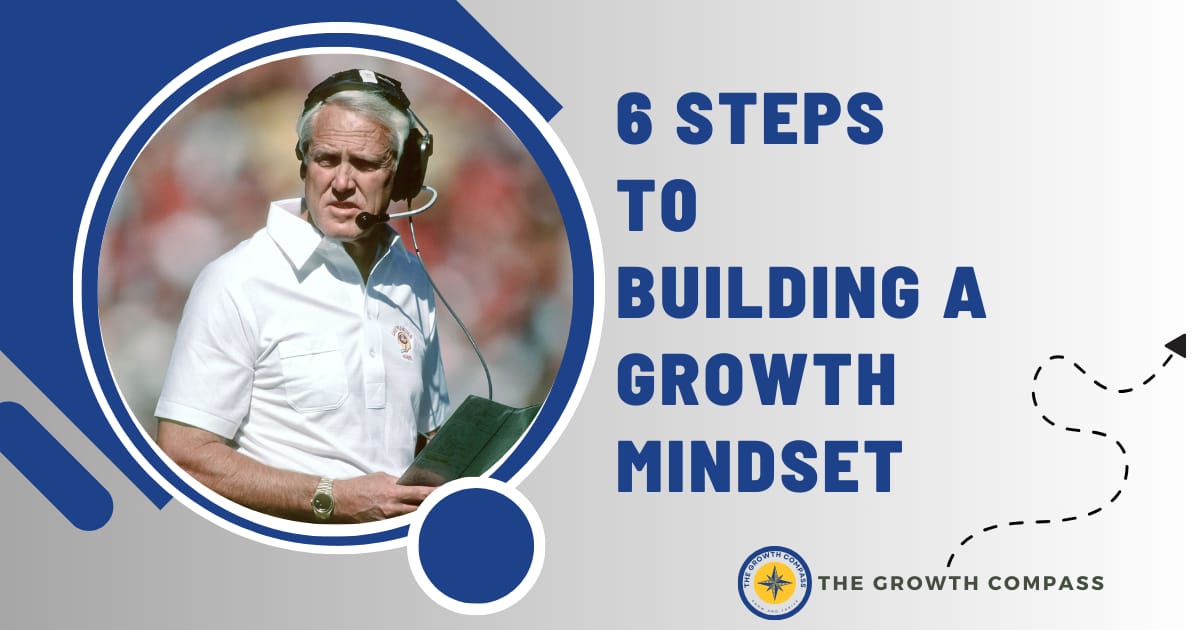
Good Day, and welcome to The Growth Compass!
⚠Reminder: We have given all subscribers access to our FREE Growth Compass Library that you can access HERE.

Here’s Where We Are Headed Today:
Carol Dweck on Mindset
What You Need to Know About Building a Growth Mindset
Favorite Posts I Found This Week
Free Mental Fitness Links 👇
Carol Dweck on Mindset
“In the fixed mindset, everything is about the outcome. If you fail - or if you’re not the best - it’s all been wasted. The growth mindset allows people to value what they’re doing regardless of the outcome. They’re tackling problems, charting new courses, working on important issues. Maybe they haven’t found the cure for cancer, but the search was deeply meaningful.” - Carol Dweck, Mindset: The New Psychology of Success

The Sleep App That Forbes Rated 5 Stars 😱
The app Forbes said helps "users achieve high-quality sleep by creating and maintaining effective sleep routines.” is back with new sounds and features!
Now featuring over 300 unique sounds to fall asleep to, a personalized sleep tracker and more. It’s no wonder over 65 million people have downloaded this app for better sleep.
Try it tonight 👇
How to Truly Enable a Growth Mindset
If you’ve ever felt stuck or doubted your ability to succeed, the key to overcoming these obstacles lies in adopting a growth mindset. A growth mindset is the belief that abilities and intelligence aren’t fixed, but can be developed. It teaches you to view challenges and failures as opportunities to grow.
What it is: A growth mindset is the belief that your abilities and intelligence can be developed through hard work and learning. As Carol Dweck, who pioneered this concept, explains, the essence of a growth mindset is understanding that challenges and failures are opportunities for growth.
Why it matters in life: Having a growth mindset helps you overcome setbacks and develop resilience. Research shows that this mindset not only enhances academic and professional performance but also contributes to personal well-being and satisfaction.

Visual from Educators Technology
What the science says:
Effort Praise vs. Talent Praise: Praising effort over innate talent leads to better outcomes. Dr. Claudia Mueller’s studies show that students praised for their effort are more willing to take on challenges and persist after failure compared to those praised for their intelligence.
Neuroplasticity: Your brain is designed for growth. Neuroscientific studies demonstrate that the brain forms new connections and strengthens existing ones through effort and practice. Dr. Michael Merzenich’s work on neuroplasticity proves that your brain remains malleable throughout your life.
Error Analysis: Research by Dr. Jason Moser reveals that people with growth mindsets experience heightened brain activity in regions linked to learning when they make mistakes. This means you can train yourself to learn from errors rather than avoid them.
Stress is an Enhancing Mindset: Dr. Alia Crum’s research shows that how you perceive stress influences its effects. Viewing stress as a tool for growth rather than a threat improves performance in high-pressure situations.
So how can you enable a growth mindset for yourself or others?
Praise effort not results - How you give and receive feedback shapes your growth. Focus on effort-based feedback, like “You worked hard on this,” instead of labeling someone as “smart.” Effort-based feedback reinforces a belief in improvement. Research shows that this approach fosters motivation and a willingness to tackle challenges.
Narrative shapes identity - The stories you tell yourself about your abilities influence your mindset. Replace fixed statements like “I’m not good at math” with growth-oriented ones such as “I can improve with practice.” This shift empowers you to take action and build confidence. Dr. Carol Dweck’s work highlights the importance of self-reflective language in fostering a growth mindset.
Reframe challenges - When you encounter obstacles, remind yourself that they’re opportunities for growth. Replace fear of failure with curiosity. For example, if you struggle with a task, ask, “What can I learn from this?” Dr. Brené Brown’s work on vulnerability emphasizes that leaning into discomfort builds resilience.
View stress for what it is - Struggle is part of the learning process. When you face frustration, remind yourself that it’s a sign of growth. Dr. Jo Boaler’s research on mathematical education shows that students who embrace struggle develop deeper problem-solving skills and achieve more significant progress.
Reflect, Grow, and Iterate - Take time to analyze both your successes and failures. Journaling about what went well and what you can improve helps solidify your learning. Studies show that self-reflection enhances growth and helps you identify actionable steps for improvement.
Effort is Contagious - Your mindset can inspire others. When you demonstrate persistence and a love of learning, those around you—family, teammates, or colleagues—are more likely to adopt similar attitudes. Research from Stanford University shows that environments that prioritize effort create stronger, more cohesive teams.
Favorite Posts I Found This Week
Free Mental Fitness Links 👇
That's a wrap for today. If you want to spread the joy, make sure to refer the newsletter to someone you think would benefit!
What'd you think of today's edition?
What I am reading and listening to:
Want More?
Feel free to view all of our FREE resources online here and our growing content library!
Interesting in advertising? Fill out this survey and we’ll get back to you soon!



